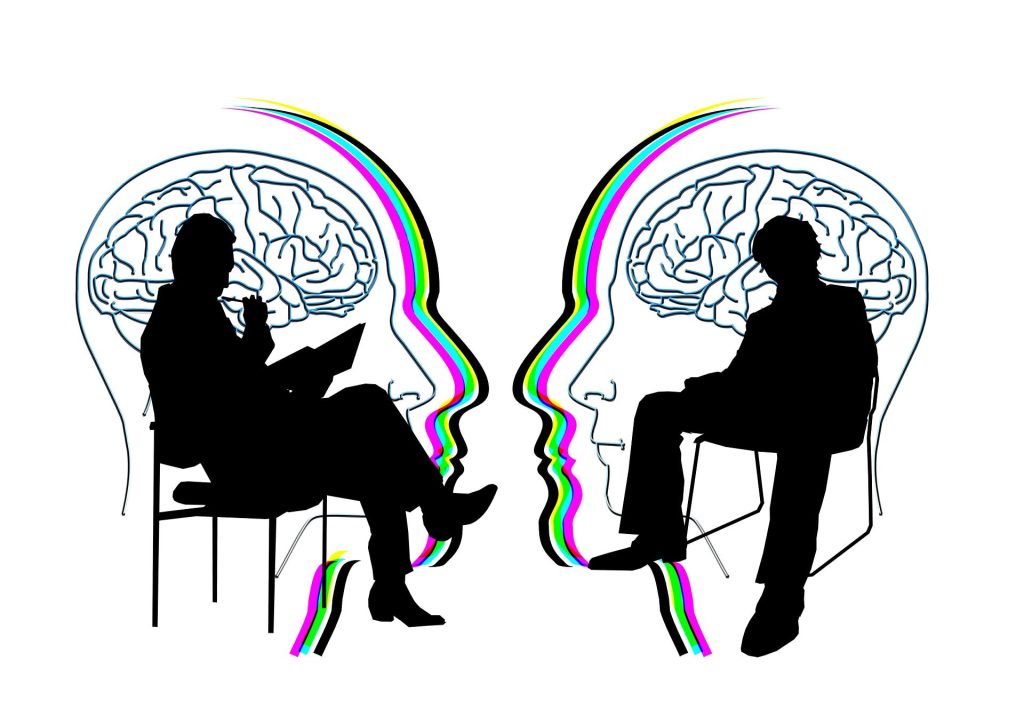Gestalt Psychotherapy
“I am me. You are you.
I am not in this world to live up to your expectations,
and you are not in this world to live up to mine.
I do my thing. You do your thing.
if by chance we find each other, it’s beautiful;
otherwise there’ll be nothing to do.”

Meeting at the “contact border”
Individual psychotherapy is characterized by the encounter with the person alone, individually without the presence of third parties (one’s partner or a family member). This space is felt and requested in a specific way by the individual because the need emerges to feel and start a confrontation with someone totally external to his or her living environment.
Although the meeting with a family member or partner may be useful at a therapeutic level, the need for no one else to intervene within the therapeutic setting and the guarantee of this by the professional, becomes a fundamental pillar for the creation of an excellent and healthy therapeutic alliance.
The inclusion of a third party in the meetings may be considered in other phases of the therapeutic process.

My and your need. What meeting?
In couples’ psychotherapy the actors and the dynamics involved increase. This increased complexity requires specific skills that are able to manage the dynamics that the couple generates every day in their daily environment and that they will recreate within the therapeutic space.
The beginning of a couple psychotherapy can show more complications, which might be:
1. different motivation among the partners in undertaking a couple path
2. different goals among the partners about going to psychotherapy
3. lack of sincerity during the meetings but high experiences kept hidden within oneself, without them becoming therapeutic material for a healthy growth for the couple.
4. triangulations by one or both members of the couple towards the therapist
5. difficulty in taking responsibility within the relationship but always blaming the other one

Awareness of family roles
Sometimes it may be appropriate to intervene right away on the family system, since it might be the most dysfunctional aspect and generator of the same problem.
It is often immediate to read the causes of a problem in the individual person. This approach reflects our propensity to find the problem in a specific element, blaming it, and neglecting what may be the general system.
In family psychotherapy, it is said, that the individual is the spokesperson for a family problem, and that the same finds its outlet in the individual family member.
The proposal of a family psychotherapy, should be well weighed, because it includes different people, that is, different degrees of motivation. Evaluating from the outset how much the whole family needs it, is may be of fundamental importance.

Our Gestalt within the group
The group takes on more than just individuals, it creates an ideal atmosphere to stir and bring out specific individual dynamics. Each member of the group/individual acquires a specific “emotional” position in the other’s head (the parent, the brother or sister, the grandmother, the employer, the friend, the enemy…). he group creates the situation as real as possible to recreate that subjective reality present in the members’ lives.
Very nice personal jobs are created in the group and at the same time the group supports and protects the individual.

Psychotherapy in adulthood
Psychotherapy pathways in adulthood are rationally structured, in order to assist dealing with specific problems, or reaching personal needs and requirements. I could say instead “emotionally” to contact many forgotten and left in different past life experiences.
Psychotherapy uses a wide range of languages, and like a symphony, each instrument becomes useful to achieve the highest sound quality. Although we are adults, every childlike part of us will be useful to create greater and more functional mental connections.

A space to “listen” to evolving words
As for every adult, children or teenagers also have a need to talk, confront, understand, ask questions and to have a personalized space where to express themselves.
Many adults “then” report what the benefits would have been if they had only had the opportunity to go to a psychotherapist at an early age or as children.
Giving this space to a child, allows the creation of a fundamental space for the achievement of that mental independence in the approaching life.
It becomes important to consider that the problem of a child is always a problem that is born and develops within a family system. The importance of the whole family considering this lies in the need to want to see themselves “as an active part” of the problem and not to close the problem to the psychotherapeutic space in itself.
– Psychodiagnosis during an evolutionary age
Any psychotherapy may involve the administration of psychodiagnostic tests. These become useful at the developmental age, as it can be more complicated to create a relationship with children, or for their part to express what they feel inside. We can say, that through a test, a diagnostic tool, we are able to obtain more information about the person and at the same time give space to the child to express himself or herself in a different way.
